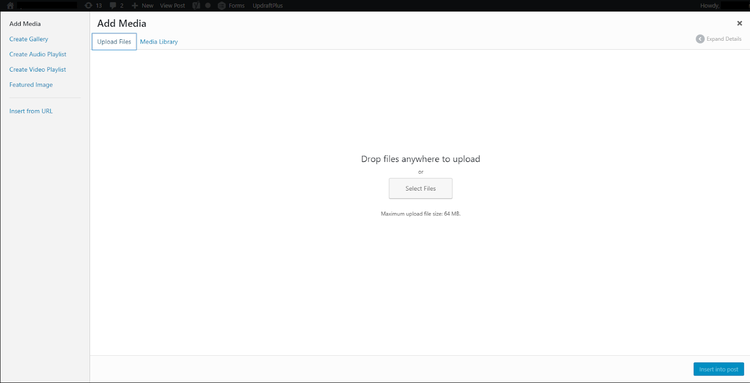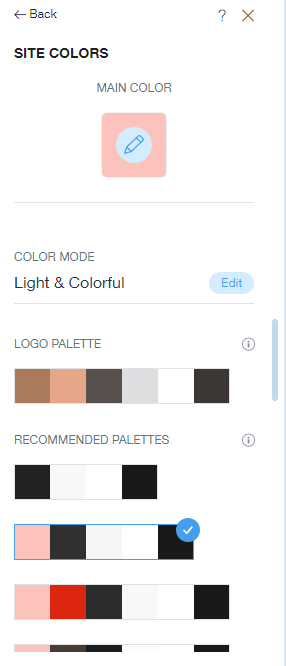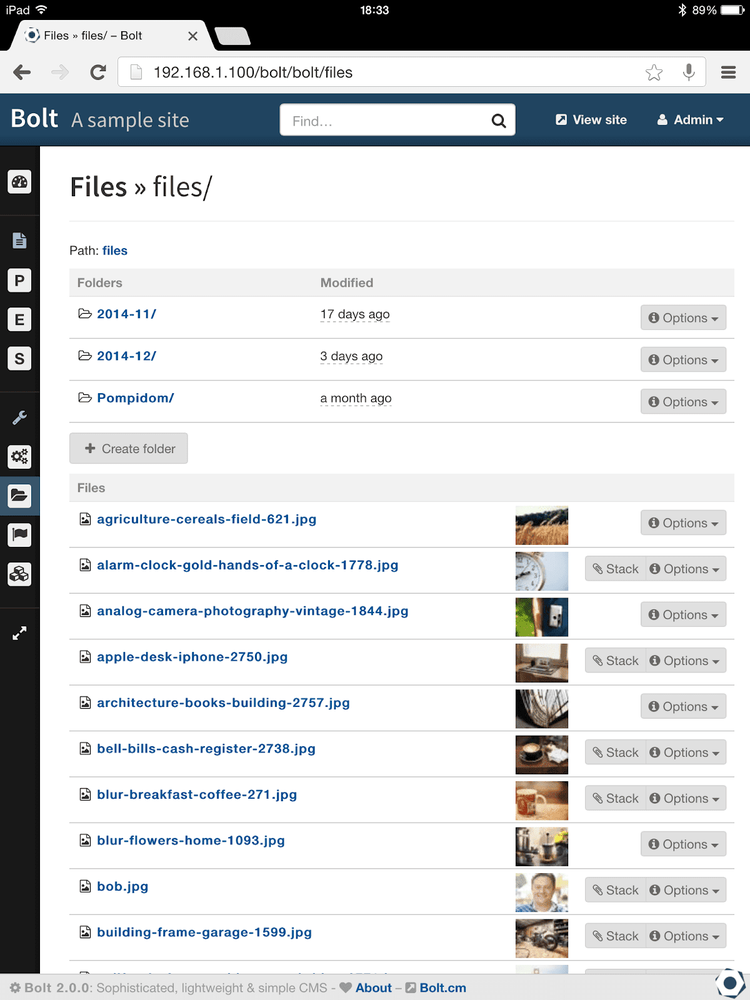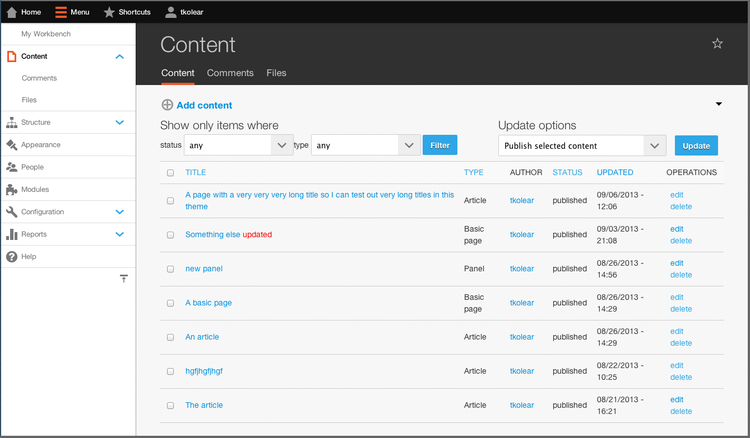Your small business needs a system for managing content and your website, but not everyone has an unlimited budget. Finding the best CMS, though, doesn’t have to break the bank and can, in fact, be free!
Here are our top picks for the best free content management systems for small businesses:
- WordPress
- Weebly
- Wix
- Bolt
- Drupal
What to consider when choosing a free content management system
The best free CMS software should still meet the same qualifications that you'd have for building a paid site. It should be easy enough to use, and it should produce a professional-looking finished product, making it a CMS software that delivers on the quality you expect of a professional business site.
1. Customizability
Your content should match your business. The ability to be dynamic and tailored to your central themes and usability is a must as your business scales and changes. Your CMS should be adaptable in the future and should be able to be set up from day one to feel unique to your own business.
2. SEO capabilities
To expand reach, your content needs to be seen. The best way to get in front of the most eyes and be discovered by new audiences is to rank in search engine algorithms.
By being set up for SEO success right away, your CMS lets you build a site that looks good and functions as you want it to, while still drawing in visitors for you without any extra work, money, or time spent.
3. Easy to use
The bottom line is that you’re going to be using your CMS on an almost-daily basis, so it needs to be easy and comfortable for you to use. The learning curve should be manageable, the setup not too stressful, and ongoing maintenance easy enough to do. No crazy coding or hard-to-navigate dashboards here!
The five best free content management systems for small business
The right CMS application can be free. Keeping in mind essential qualities and expected deliverables, these are our favorite free CMS options.
1. WordPress
WordPress started as the premier blogging platform but has grown to be the top free, open-source CMS website.
As a leading web builder, WordPress is not only free as-is (which is pretty expansive), but it also offers over 50,000 plugins, covering everything from upgraded themes to creating landing pages, social media marketing, and almost anything else you can imagine or want.
Because it’s open-source, WordPress is free to use and build your site on. Plus, it’s also a flexible and scalable option. Uploading and managing media are easy tasks, and you can even embed links and highlight video content.
When it comes to editing, you have the simplicity of dragging and dropping content blocks and media into the library while storing them safely and populating them directly into your web pages.
You can also preview your pages before setting them live, so you know everything will look and flow just right.

WordPress has a super simple media manager and content uploader. Image source: Author
WordPress has several free options for themes and customization that can modify your entire site and theme from one hub, rather than page by page. Efficiency and customizability are high on WordPress' list.
Read The Ascent’s full WordPress review
2. Weebly
Weebly may have paid plans, but it also has a free tier that doesn’t sacrifice its efficiency or ease of use and still has many features. The library of templates is continuously updating and stays dynamic.
You have several choices (free options included) that are easy to design and look super professional. Weebly sites are automatically optimized for desktop and mobile viewing, too, for SEO purposes and easy viewing.

Weebly’s standard themes are eye-catching and easy to customize. Also, you can opt to pay for a more extensively designed third-party theme template. Image source: Author
Though Weebly’s first paid option is super affordable (a mere $6 per month when billed annually), it also has a free basic plan you can use for as long as you want.
Read The Ascent’s full Weebly review
3. Wix
Wix is similar to Weebly because it has paid plans, too, and gives you an unlimited free option.
Whether paid or free, though, you have access to beautiful designs, either via template or by building them through its drag-and-drop builder. The dashboard is intuitive and easy to understand, and, best of all, you need to know precisely zero coding to use any part of Wix.
This system loves customization. You can develop your entire site theme and color palette around a central logo and by answering a few questions about your business, getting a professional-looking site up in no time. Ongoing management of content is a breeze since editing is just as easy as building.

The Wix color picker is almost magical, making life easier for creatives everywhere. Image source: Author
Wix does have those paid options, but since there is a long-term free option, you can use Wix for free forever.
Read The Ascent’s full Wix review
4. Bolt
Prioritizing a lack of clutter and a streamlined solution, Bolt is an open-source, free CMS determined to provide an efficient system. It’s made by front-end developers who know what it takes to make something easy to use.
The design is modern, and the tools are intuitive. It allows you to focus on creating pages, editing content, and producing deliverables rather than learning a ton of coding or backend technology.
The lack of bells and whistles means that what it does do, it does really well. And those functions (managing content, creating a dynamic user experience, seeing top-line analytics, etc.) are essential in a good CMS.

Bolt’s file system is organized and free of clutter. Image source: Author
The templates look pretty professional, and setting it all up is quick and easy. Another great feature is its page loading time, as the content is designed to load up quickly. Though there is some coding involved, you don’t need to do anything from scratch. Managing it is easy and stress-free.
Read The Ascent’s full Bolt review
5. Drupal
Yet another open-source CMS, Drupal has a large, knowledgeable community of designers, developers, editors, builders, etc. It's great for hosting sites that are large and tend to need a lot of bandwidth, have constant uptime, and present a professional look.
Drupal is also super flexible, so you can adapt your site to almost any use and have it scale as your business grows. You will most likely need to hire a developer to get it set up, as this option is not code-free. You'll need to build the infrastructure, but after it's built, it's pretty easy to manage and use on an ongoing basis.
There are many themes and site customizations you can decide to use, and every theme auto optimizes for mobile as well as desktop so that you can capture the widest audience.
Building pages involves that beloved drag-and-drop capability, so site building and page editing are relatively straightforward. There's also no coding involved in editing and uploading content.

Easily organized content, easy-to-understand editing. Image source: Author
Despite some initial development costs, Drupal stays afloat as a free builder that’s easy enough to use.
Read The Ascent’s full Drupal review
You don’t always have to pay for quality
A good CMS can cost a lot, or it can cost almost nothing. Despite shelling out $0, you can set yourself up with a system that's rich in features, functions, scalability, and flexibility.
Though open-source, free plans lack dedicated account management. However, there is usually a vast wealth of online resources that can set you up for any level of success. If your budget is tight, exploring one of these five free options may be your best bet.
Our Small Business Expert
We're firm believers in the Golden Rule, which is why editorial opinions are ours alone and have not been previously reviewed, approved, or endorsed by included advertisers. The Ascent does not cover all offers on the market. Editorial content from The Ascent is separate from The Motley Fool editorial content and is created by a different analyst team.